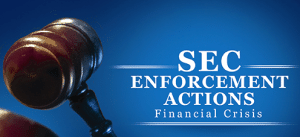 There has been a lot of uproar about new rules requiring additional steps to verify accredited investor status (i.e. checking tax returns) as a condition to using the new 506(c) rules permitting general solicitation.
There has been a lot of uproar about new rules requiring additional steps to verify accredited investor status (i.e. checking tax returns) as a condition to using the new 506(c) rules permitting general solicitation.
The real problem here is that the definition of accredited investor is out of touch with reality and is based on very sensitive personal financial information without any real rationale. An accredited investor is a person that the SEC deems is sophisticated enough to protect themselves in making investment decisions and therefore does not require certain additional protections under certain securities laws. Currently, to be an accredited investor as an individual, you must:
(1) earn $200,000 (or $300,000 jointly with your spouse) in income over the last 2 years or
(2) $1 million in net worth (excluding home value).
The definition relies solely on financial metrics and ignores any other factors. Consider that the following people are probably not accredited investors (i.e. not sophisticated enough to protect themselves):
- Your U.S. Congressman (the annual salary $174,000)
- Your securities lawyer (outside of major markets of NY, SF, LA, CHI etc.)
- Average Harvard Professor ($151,262)
- Federal District Court Judge ($186,000)
- Your stock broker ($131,000)
 Some of these people are charged with protecting other members of the public, yet they are not deemed to be able to protect themselves.
Some of these people are charged with protecting other members of the public, yet they are not deemed to be able to protect themselves.Additionally, the standard does not treat all citizens equally. It ignores cost of living discrepancies across the country. $200,000 in New York City is a lot different than $200,000 in Houston, Texas.
The standard disproportionately excludes people in lower cost of living areas. People in Houston in the same financial condition should have the same opportunities to invest in startups as people in New York. Also, as Joe Wallin and Bill Carleton have pointed out, the joint marriage threshold inappropriately excludes certain same sex couples.
The ultimate goal here should be that the accredited investor definition is refined so that it treats people fairly and equally and that it is based on real metrics indicating sophistication as well as publicly available validation methods so that people will be comfortable verifying their accredited investor status.
 Here are some proposed categories of people who should be added to the accredited investor definition:
Here are some proposed categories of people who should be added to the accredited investor definition:
- Individuals holding an advanced degree in business/law related fields (i.e. Masters or PhD in Finance, Economics, Business, etc.)
- Individuals with Professional Designations (i.e. J.D., CPA, CFA)
- Individuals who hold securities licenses (Series 7, Series 63, etc.)
- Individual’s who pass a standardized accredited investor test with publicly available results
 Kiran Lingam has a passion for helping young companies do big things. In his time before SeedInvest, Kiran worked at a corporate and securities attorney at the law firms of Jones Day LLP and DLA Piper LLP, where he served as outside legal counsel to venture capital and private equity funds, angel groups and over 30 technology startups. He has seen first-hand the struggles encountered by early stage entrepreneurs and believes strongly that many more startups would be successful with additional avenues for early stage capital. Since passage of the JOBS Act, Kiran has been an active speaker, writer and commentator on crowdfunding and the related legal issues. He is a Charter Member and Executive Team member of TiE (The Indus Entrepreneurs) and is an active member of a number of groups in the New York startup community. Kiran received a B.A. in Economics from Cornell University and a J.D., with honors, from the University of Georgia.
Kiran Lingam has a passion for helping young companies do big things. In his time before SeedInvest, Kiran worked at a corporate and securities attorney at the law firms of Jones Day LLP and DLA Piper LLP, where he served as outside legal counsel to venture capital and private equity funds, angel groups and over 30 technology startups. He has seen first-hand the struggles encountered by early stage entrepreneurs and believes strongly that many more startups would be successful with additional avenues for early stage capital. Since passage of the JOBS Act, Kiran has been an active speaker, writer and commentator on crowdfunding and the related legal issues. He is a Charter Member and Executive Team member of TiE (The Indus Entrepreneurs) and is an active member of a number of groups in the New York startup community. Kiran received a B.A. in Economics from Cornell University and a J.D., with honors, from the University of Georgia.
